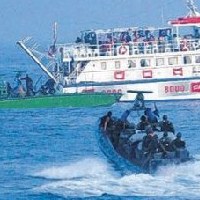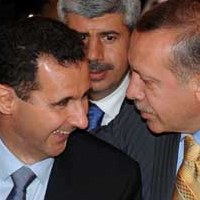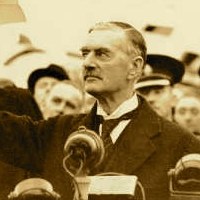![]()
Mon, Aug 15, 2011 | Turkey Analyst, vol. 4 no. 15 | By Gareth H. Jenkins
Beyond Memory and Imagination: Civil-Military Relations and Turkey’s New Authoritarianism
This article was first published in the Turkey Analyst (www.turkeyanalyst.org), a biweekly publication of the Central Asia-Caucasus Institute & Silk Road Studies Program Joint Center. © Central Asia-Caucasus Institute & Silk Road Studies Program Joint Center, 2011.
The resignations on July 29, 2011, of the Turkish chief of staff and all three force commanders are without precedent in modern Turkish history. They were portrayed in the most of the international media as the military’s final admission of defeat in a long-running political power struggle with the civilian government of the Justice and Development Party (AKP). In reality, any contest for power had long since been decided in favour of the AKP. The resignations were a product of the period that followed — not preceded or accompanied — the AKP’s assertion of supremacy; namely, a protest against what the military regarded as the AKP’s abuse of its monopoly of political power to persecute and imprison hundreds of members of the officer corps.
Background
The Turkish military’s political influence was already in decline even before the AKP first came to power in November 2002. Changes in the international strategic environment, Turkey’s candidacy for the EU, its integration into the global economy and the growing transformation of Turkish society meant that a full-blooded coup had become merely a hypothetical possibility. But the military’s historical record of toppling elected governments and the considerable respect it still enjoyed among a large section of the population meant that most politicians — including the AKP — were fearful of defying its admonitions and advice. As a result, the military continued to cast a shadow over Turkish politics.
The turning point came in 2007, when Chief of Staff General Yasar Büyükanıt attempted to bully the AKP into abandoning its plans to appoint Abdullah Gül to the presidency. The AKP responded by calling an early general election for July 22, 2007, and was returned to power in a landslide. Unable to challenge such an unequivocal expression of the popular will, the military could only stand and watch as Gül was sworn in as president in August 2007. Gradually at first, and then increasingly from the second half of 2008 onwards, the AKP and its supporters in the police and the judicial system finally began to realize that the political influence of the once feared military was now little more than bluff and bluster.
The notorious Ergenekon investigation began to gather pace. Hundreds of government critics and potential rivals were arrested and charged with membership of a single, centrally-controlled clandestine organization which was allegedly conspiring to foment a coup and had been responsible for virtually every act of political violence in the previous 20 years. The accused included a handful of retired generals and a few serving, low-ranking members of the military. The investigation was flawed from the outset, marred by repeated breaches of due process and self-contradictory indictments redolent with absurdities, inventions and febrile conspiracy theories.
Yet, in a demonstration of how weak it had now become, the military could do nothing. Emboldened, AKP supporters in the judicial apparatus launched a slew of further investigations; this time directly targeting the armed forces. They included allegations that members of the military were plotting to assassinate an admiral, running a prostitution ring in order to gather blackmail material and planning to assassinate members of Turkey’s religious minorities and murder schoolchildren during a visit to a museum. In each case, the allegations looked convincing when first reported in the pro-AKP media; but fell apart as soon as they were examined in any detail. The most ambitious was the so-called Sledgehammer investigation, in which over 200 serving and retired officers — including 43 generals and admirals — have so far been charged with plotting a coup in early 2003. The documents produced in court even included a detailed coup plan, codenamed Sledgehammer. Police forensic reports claimed that the plan had been burned to a CD in March 2003, after which no amendments or additions had been made. However, the alleged plot included hundreds of errors and anachronisms, including references to events in 2004, 2005, 2006, 2007, and 2008. There is no doubt that the plan is not only a fabrication but a very poor one. Perhaps more disturbingly, there are also numerous indications that the police have been planting evidence in the homes of some of the accused. Yet still the military has been unable to stop the investigations or free the hundreds of officers — who now include 14 percent of Turkey’s serving generals and admirals — that are being held in prison pending the completion of their trials.
Implications
Promotions and assignments in the higher echelons of the military are decided at the annual meeting of the Supreme Military Council (YAŞ), which meets at the beginning of August each year. Although meetings are chaired by the prime minister, civilian governments have traditionally made little effort to interfere, effectively rubberstamping decisions already taken by the military high command.
Under Article 65 of the Turkish Armed Forces Personnel law, any officer who is under arrest cannot be considered for promotion. On July 23, 2010, prosecutors in the Sledgehammer investigation ordered the arrest of 28 serving generals and admirals, including 13 who were due be considered for promotion at the YAŞ meeting that was scheduled to begin on August 1, 2010; thus rendering them ineligible. At the meeting itself, Prime Minister Tayyip Erdoğan blocked the expected appointment of General Hasan Iğsız as commander of the Land Forces. Iğsız, who was widely perceived as being hostile to the AKP, was forced to take early retirement. In his place, General Erdal Ceylanoğlu, another hard-liner, was appointed to command the Land Forces. But the military succeeded in having its candidate, General Işık Koşaner, appointed chief of the general staff. Koşaner was expected to remain in his post for three years before reaching the mandatory retirement age of 67. The military also lined up his likely successor, General Necdet Özel, who was appointed commander of the Gendarmerie. Özel was expected to take over from Ceylanoğlu as commander of the Land Forces in 2011 and serve for two years before succeeding Koşaner in 2013.
Through late 2010 and early 2011, dozens more serving and retired members of the military were arrested and imprisoned on charges related to the various ongoing cases. By July 2011, 173 serving and 77 retired officers were being held in jail while their trials continued. They included 14 generals and admirals who were due to be considered for promotion at the YAŞ meeting that was scheduled to start on 1 August 2011. In the run-up to the meeting, Erdoğan repeatedly insisted that not only would they be denied promotion but would be forced to take early retirement; with no prospect of reinstatement or compensation if they were eventually acquitted of the charges against them.
In meetings with the imprisoned officers’ relatives, Koşaner had pledged that he would either prevent their careers from being ruined or resign in protest. Erdoğan remained adamant. On the evening of Friday July 29, 2011, Koşaner duly tendered his resignation. He was followed within the hour by the commanders of the Land Forces, Navy and Air Force. In order to minimize any turmoil on the Turkish financial markets, the resignations were delayed until after the end of trading for the week. On July 30, 2011, Özel, the military’s chosen successor to Koşaner, was appointed commander of the Land Forces. On August 4, 2011, he was formally confirmed as chief of staff, effectively bringing forward his appointment by two years.
In private conversations with AKP officials, members of the military had made it clear that more resignations would follow if Erdoğan insisted on forcing the 14 generals and admirals into early retirement. After initially prevaricating, Erdoğan eventually backed down and agreed to a compromise whereby all 14 had their terms extended by another 12 months in the hope that their trials would concluded by the time YAŞ met again in August 2012.
Conclusions
From one perspective, the outcome of the YAŞ meeting represents a victory for the military. Erdoğan was forced to back down. The principle of suspects being regarded as innocent until proven guilty was upheld. The morale of the officer corps was boosted by seeing their commanders sacrifice their careers in defence of the rights of their subordinates.
But it was a minor triumph in a war that has long been lost. There is no indication of any respite in the relentless campaign against the military. Özel currently appears likely to see many more serving and retired officers imprisoned during his command; and be as powerless as his predecessors to halt the process. The last remaining remnants of an independent Turkish media have been so cowed by the treatment of those of their colleagues who have questioned the conduct of the cases — several of whom have themselves been jailed and charged with membership of Ergenekon — that few dare even to cover the investigations anymore.
Ironically, the resignations of the Turkish high command came on the same day as prosecutors issued arrest warrants in what has become known as the Andıç investigation, in which members of the military have been accused of running anti-government websites. Unlike the other cases, Andıç is at least grounded in reality. It is an open secret that, starting over a decade ago, the Turkish military used websites as platforms for propaganda campaigns against Kurdish nationalists, Greece, the campaign for recognition of the Armenian genocide and moderate Islamists, such as the AKP. However, although undoubtedly illegal, the accusations in the Andıç case — such as republishing critical articles by newspaper columnists opposed to the AKP — appear relatively mild when compared with the tactics of government supporters in the security apparatus in the run-up to the June 12, 2011 general election. For example, no attempt has been made to prosecute those responsible for the secret recording, and subsequent broadcast on the internet, of sex videos involving leading members of the Nationalist Action Party (MHP) or the bugging and release on the internet of private conversations between Kurdish nationalists; both of which Erdoğan exploited for political gain during the election campaign.
Indeed, the events that triggered the resignations of the military command on 29 July, 2011, have reinforced a growing concern that, under the guise of freeing Turkey from the shadow of military interventionism, AKP is merely leading the country deeper into a different form of authoritarianism.
Gareth H. Jenkins, a Senior Associate Fellow with the CACI & SRSP Joint Center, is an Istanbul-based writer and specialist of Turkish Affairs.



 RSS
RSS













Beyond Memory and Imagination: Civil-Military Relations and Turkey’s New Authoritarianism | Middle E http://t.co/gjqxzHY
Beyond Memory and Imagination: Civil-Military Relations and Turkey’s New Authoritarianism | Middle E http://t.co/gjqxzHY